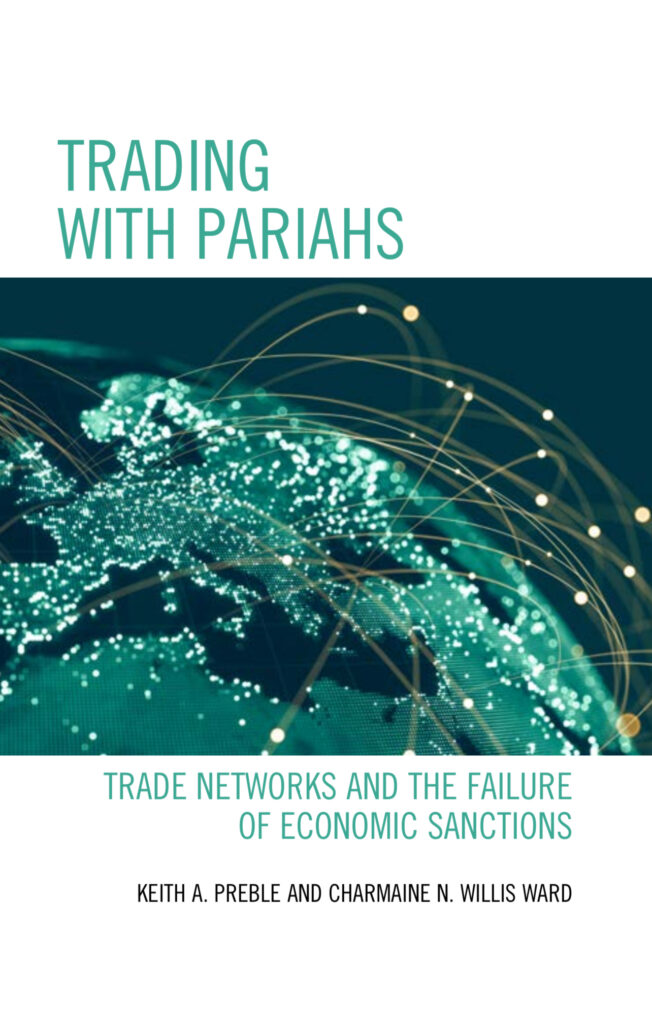Quick Links: Download my CV — Google Scholar — ORCID — Bluesky — LinkedIn Profile — Trading with Pariahs — Sanctions Enforcement Data Set
About Me
I am currently a teaching assistant professor in the Department of Political Science at East Carolina University (ECU).
I teach courses in the department’s Political Science and Security Studies programs. Sample syllabi can be found in the Teaching tab.
I completed my Ph.D. in Political Science in December 2021 from the Department of Political Science at Rockefeller College of Public Affairs and Policy at the University at Albany, State University of New York with concentrations in international relations and comparative politics. My dissertation, “Economic sanctions and opportunism,” was awarded Rockefeller College’s Distinguished Doctoral Dissertation Award for the 2021/2022 AY.
I conduct research on foreign policy & economic statecraft, economic security, economic sanctions, tariffs, strategic trade controls, and terrorism and proliferation financing. I also have an interest in European and EU politics, North Korea, and Southeast Asia.
I also have an interest in visualization tools, and you can see some examples of work I have done in Flourish below. More examples can be found on my Visualizations page.
TRADING WITH PARIAHS: TRADE NETWORKS AND THE FAILURE OF ECONOMIC SANCTIONS
My first book, Trading with Pariahs: Trade Networks and the Failure of Economic Sanctions, co-authored with Charmaine N. Willis Ward (Skidmore College), explores the role that trade networks play in the success or failure of economic sanctions. The past few decades have witnessed a proliferation of economic sanctions, yet there seem to be few examples of sanctions meeting sender states’ goals. Under what conditions do sanctions fail to change the behavior of so-called international “pariah states,” countries who violate various international norms? This book examines the impact of economic sanctions on target states’ trading relationships through social network analysis, a method that has rarely been applied to the study of sanctions.

Drawing on UN Comtrade data, we show that the imposition of sanctions can drastically change some states’ trading networks, as states either find new trading partners (in the case of North Korea) or feel the sting of the sanctions from key trading partners (like Iran). Others’ trading networks (such as Myanmar’s) remain relatively stable over time as key trading partners refuse to impose sanctions. Through the theory of weaponized interdependence, the authors argue that the success or failure of sanctions to change target states’ behavior depends on who imposes the sanctions. Sanctions imposed by the “right” sender states can be successful but also cannot rely solely on policies of isolation to achieve sanctions’ goals.
‘SMART EVASION’ AND THE GLOBAL RESISTANCE TO US ECONOMIC SANCTIONS (In Progress)
I have recently completed the manuscript for my next book, ‘Smart Evasion‘ and the Global Resistance to US Economic Sanctions. This book examines how states utilize their policymaking apparatus to develop institutional responses to economic sanctions.